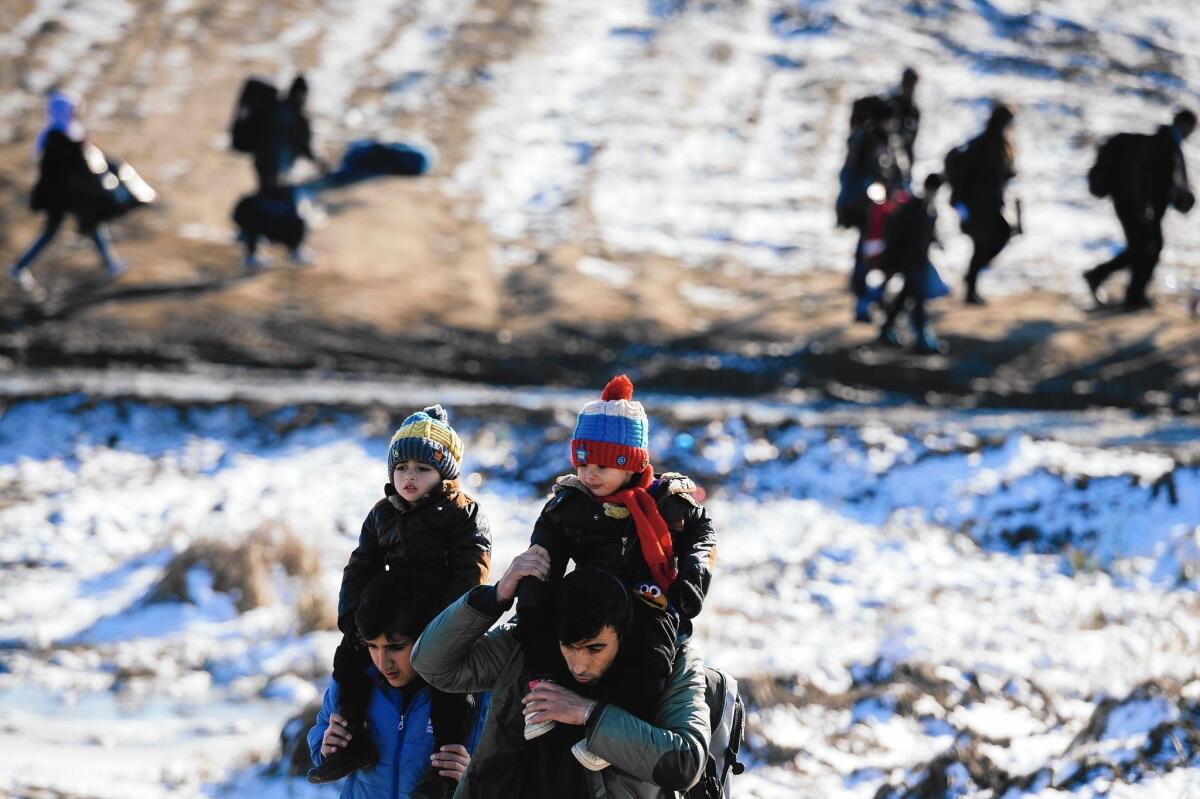EU could ‘fail as a political project’ because of migrant crisis, leaders say

The head of the European Union’s leadership body warned Tuesday that the 28-nation bloc must develop a better strategy for handling the migration crisis, as it faces criticism that its existing policies do not work.
EU failure to address the crisis, European Council President Donald Tusk warned, would bring “grave consequences” including the possible end of passport-free movement within the nations that are part of the Schengen Area. He went so far as to say the EU would “fail as a political project” if it could not efficiently control its external borders.
Tusk told EU lawmakers that a summit scheduled in the Belgian capital, Brussels, on March 17 and 18 was “the last moment to see if our strategy works.”
His stark warning came after Hungary, Slovenia, Austria, Denmark and Sweden reintroduced border controls and other countries refused a plan to share the problem by agreeing to take a quota of migrants.
The Czech Republic, Hungary, Poland and Slovakia, an informal grouping known as the Visegrad Four, or V4, have expressed virulent opposition to a plan to relocate 160,000 refugees in Italy and Greece.
This intransigence threatens to cause a domino effect in neighboring Slovenia and Serbia, both of which are on the so-called Balkan migrant corridor from Greece, where most migrants are arriving from Turkey, to Northern Europe. Both countries have threatened unspecified retaliatory measures if V4 nations slow down or prevent refugees from entering their territory.
“If Austria and Germany introduce certain measures that would mean tighter control of the flow of migrants, Slovenia will do the same,” Karl Erjavec, Slovenian foreign minister, said at a news conference in Belgrade on Tuesday with Ivica Dacic, the Serbian foreign minister, who said his country would “protect its interests.”
“We cannot allow [other] borders to close and limit the flow of migrants so they stay in Serbia,” Dacic added.
Britain has been criticized for its contentious demand to be allowed to curb social benefit payments to EU migrants for four years after they arrive, a move London says is necessary for the country to remain in the bloc.
As the migrant issue sparks disputes and division among EU states, officials in Germany, the main destination for people arriving in Europe, have expressed frustration at the EU’s apparent inability to find a collective response to the migration, the biggest in Europe since World War II.
The humanitarian aid organization Doctors Without Borders accused the EU of “catastrophic failure” over its handling of the estimated 1 million refugees and migrants who arrived on the continent in 2015, many of them fleeing conflict and poverty. About 3,000 new people are reportedly arriving in Greece every day, and almost 3,800 people died trying to cross the Mediterranean last year.
In a report published Tuesday, the aid agency said the EU had “considerably aggravated” the migrant crisis. And it said border closures and police clampdowns on those seeking sanctuary, homes and jobs were forcing refugees to find increasingly dangerous routes to Europe, and lining the pockets of human traffickers.
“Not only did the European Union and European governments collectively fail to address the crisis, but their focus on policies of deterrence along with their chaotic response to the humanitarian needs of those who flee actively worsened the conditions of thousands of vulnerable men, women and children,” said Brice de le Vingne, head of operations for Doctors Without Borders.
On Monday, French police brought in bulldozers to clear part of a shantytown near Calais known as the Jungle, home to 5,000 migrants. France’s authorities have evicted 1,500 people from tents and shacks to create a “buffer zone” between the camp and the nearby highway.
Many of the evicted families have been offered homes in 12-bed units created from shipping containers that have electricity and heating. However, the authorities are demanding migrants give their fingerprints before being allowed to move into a container home.
Willsher is a special correspondent.
More to Read
Sign up for Essential California
The most important California stories and recommendations in your inbox every morning.
You may occasionally receive promotional content from the Los Angeles Times.










